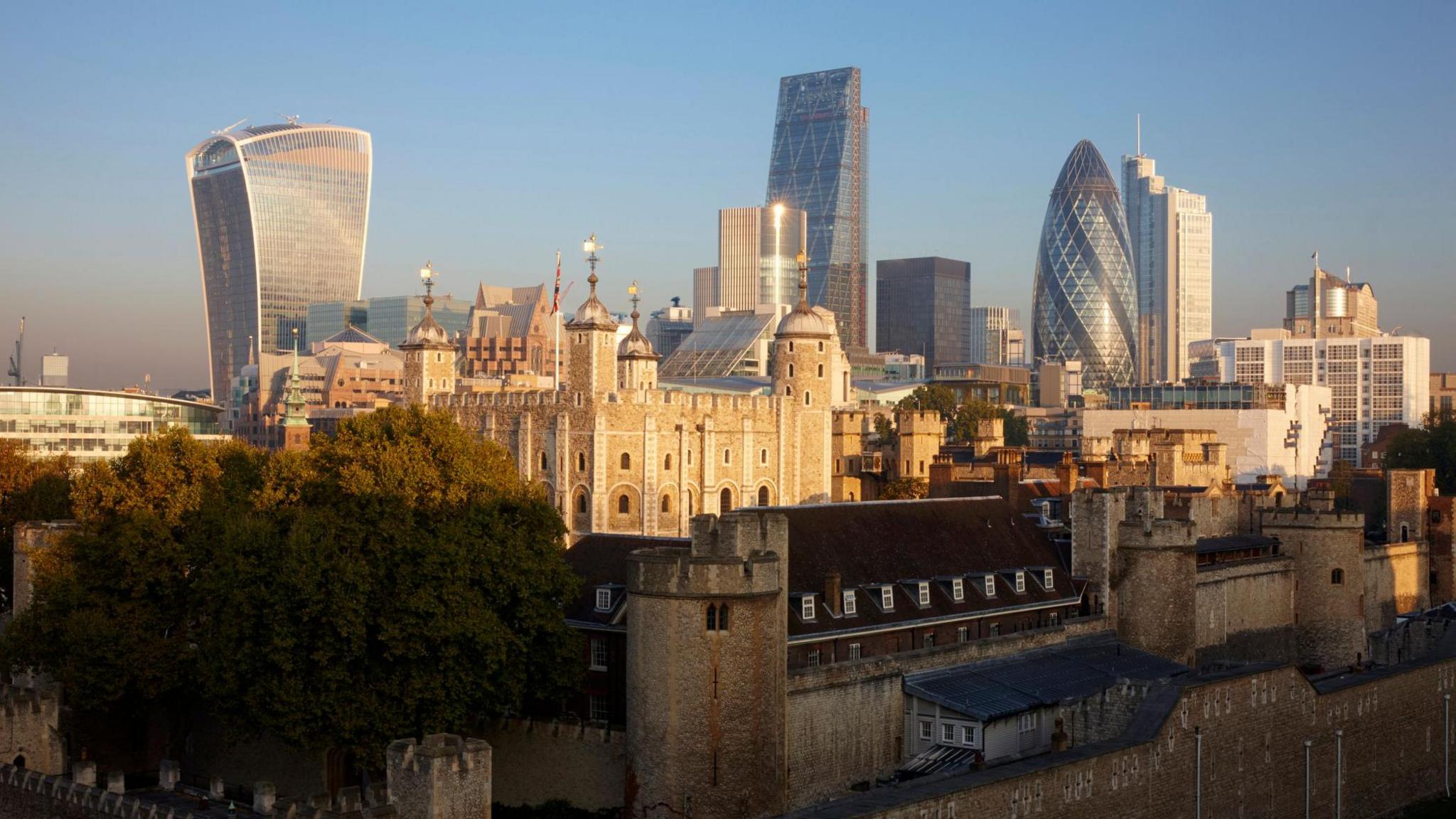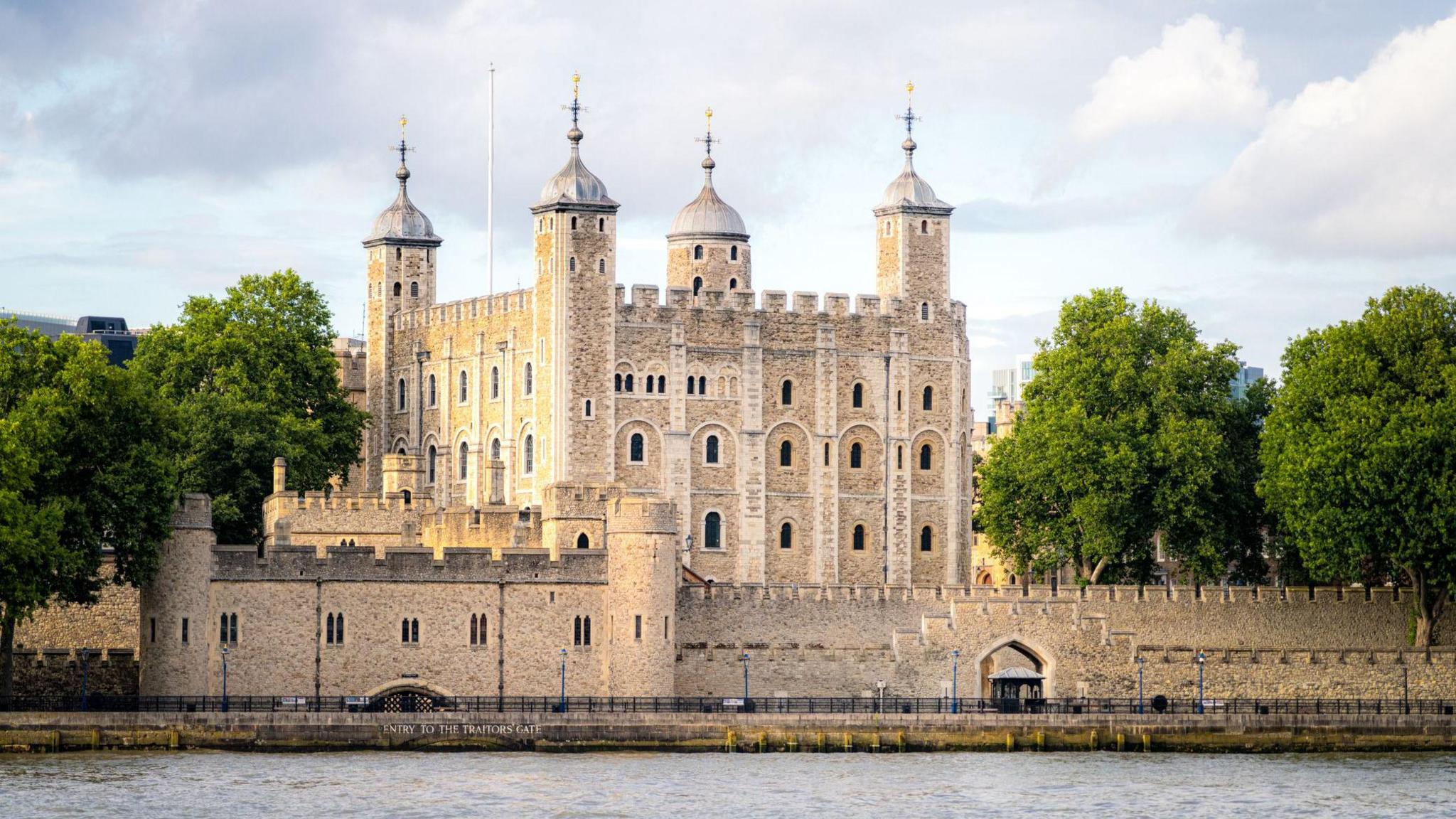Unesco to probe high-rise impact on Tower of London

Historic England has said it is concerned about the encroachment of tall buildings on the Tower of London
- Published
The potential impact of new high-rise buildings on the Tower of London will be assessed by the Unesco, the body has confirmed.
The move has sparked fears from Historic England that the tower's world heritage status could be at risk.
Concerns were first raised in Historic England’s submission to the City of London Corporation’s (CLC) draft local plan consultation for new office and residential buildings, City Plan 2040.
Shravan Joshi, deputy chair of the CLC's planning committee, previously said the plans "celebrates all our heritage" while supporting the City's growth.
The 2040 plan details the City's policies on housing, offices and cultural spaces to guide future planning decisions.
Historic England has previously said the policies on offices and tall buildings were likely to "severely harm" assets such as St Paul’s and the Tower of London, in a submission seen by the Local Democracy Reporting Service (LDRS).
It said the City’s draft tall building policies represent a "real threat to the World heritage site status of the Tower of London", and that Unesco had requested the report into the site.

The Tower of London is listed as a Unesco world heritage site
Unesco, which designates whether areas are world heritage sites, told the LDRS it expects a State of Conservation Report to be submitted by 1 December, for "possible examination" by its committee in 2025.
The site was last reviewed in 2014.
A Unesco spokesperson said the request was due to concerns about "cumulative impacts" from nearby high-rise developments and insufficient protection of the property's "outstanding universal value".
They added the government had confirmed a report would be submitted by 1 December "for possible examination by the World Heritage Committee at its 47th session in 2025".
Historic England will be among the partners assisting the government on the report.
'Level of threat'
A Historic England spokesperson said: "Historic England and the International Council on Monuments and Sites have over the past few years raised serious concerns about a number of proposals for tall buildings that would affect the Tower of London."
They added Unesco would be assessing the "level of threat" the high-rise proposals could cause to the "outstanding universal value of the Tower of London" and would then "consider whether further action is necessary".
Asked about Unesco’s request, the City directed the LDRS to a comment previously by Mr Joshi where he said the plan "recognises the exceptional significance of the World Heritage Site and the Cathedral" and takes a "bespoke and exhaustive approach to tall buildings and heritage".
"The Plan will ensure development protects and celebrates all our heritage assets while continuing to support the economic growth of the capital," he added.
"In the City, growth and conservation combine to define what is unique about the Square Mile, and this is ultimately at the heart of the Plan."
Tower of London heritage status faces 'real threat'
- Published8 June 2024
Seven sites win UK backing for Unesco status
- Published10 April 2023
Skyscraper as tall as The Shard planned for London
- Published2 February 2024
Historic Royal Palaces, which manages the Tower of London, confirmed it would contribute to the report and has expressed significant concerns about the City Plan 2040, calling its approach to tall buildings and their impact on the Tower "unsound".
The CLC’s draft City Plan 2040 is expected to be submitted to the government this autumn, before being examined by the planning inspector.
If cleared, adoption of the plan is anticipated in the new year.
Listen to the best of BBC Radio London on Sounds and follow BBC London on Facebook, external, X, external and Instagram, external. Send your story ideas to hello.bbclondon@bbc.co.uk, external